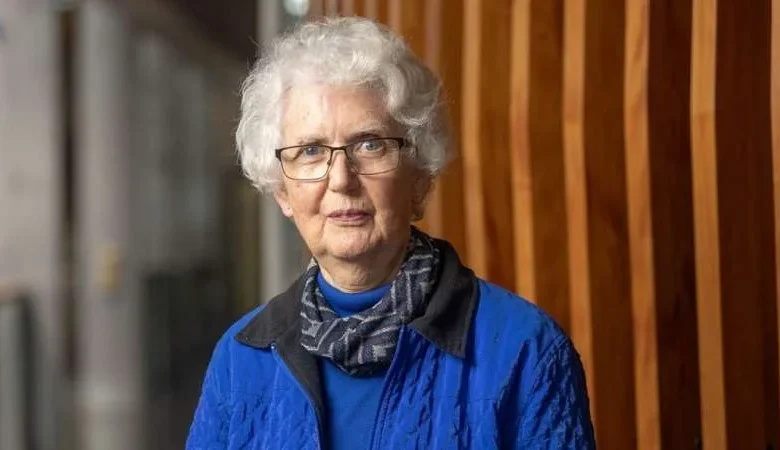Caroline Crowther: A Leading Voice in Maternal & Perinatal Health Research

Early Career & Academic Background
Caroline Crowther: Caroline A. Crowther is an obstetrician-gynecologist, maternal-fetal medicine specialist, and researcher. She holds appointments with both the University of Auckland and University of Adelaide.
Her early career involved academic training, clinical practice, and developing interest in perinatal health, including high-risk pregnancies. She has worked in multiple countries, including Australia, Zimbabwe, and the UK before settling into her long-term roles in New Zealand.
Her profile on University of Auckland’s site and other academic directories lists her as Professor of Maternal & Perinatal Health at the Liggins Institute. Over time she has built up a large body of research, accumulating hundreds of publications and tens of thousands of citations.
Major Research Contributions & Landmark Trials
One of the pillars of Caroline Crowther’s impact is her leadership of randomised clinical trials and systematic reviews that have shaped clinical care in obstetrics and neonatal health globally. Here are some of her best-known contributions:
Gestational Diabetes Treatment & Outcomes: She led or co-led studies showing that detection and treatment of gestational diabetes mellitus (GDM) can prevent serious complications for both mother and baby. One of her trials, ACHOIS, is frequently cited.
Magnesium Sulphate Before Preterm Birth for neuroprotection: Her research demonstrated that giving magnesium sulphate to pregnant women at risk of very preterm birth reduces the risk of cerebral palsy in children.
Antenatal Corticosteroids (repeat doses): She has examined the effects of repeat doses of prenatal corticosteroids for women at risk of preterm birth, balancing benefits (e.g. neonatal respiratory outcomes) vs potential risks.
Pre-eclampsia & Preventative Trials: Crowther has been involved in studies testing whether supplements (e.g. Vitamins C & E) or other interventions reduce the risk or severity of pre-eclampsia and its consequences.
Her work is not only about conducting trials, but also about systematic reviews (e.g. via Cochrane) and translating findings into clinical practice guidelines.
Global Impact: Clinical Practice & Policy Change
What makes Caroline Crowther’s work particularly influential is that many of her findings have changed standard care around the world, not just remained academic.
Her trials on magnesium sulphate have led to widespread adoption of that intervention for mothers at risk of very preterm birth, in order to reduce risks of neurological injury in infants.
The detection and treatment thresholds for gestational diabetes that she helped to define have affected how obstetric care providers screen and manage GDM, thereby reducing maternal and neonatal morbidity.
Her research has also contributed to guidelines for management of pre-eclampsia, eclampsia, and other high-risk pregnancy conditions. Her work has saved lives, reduced disability (e.g. cerebral palsy), and informed practice not only in NZ and Australia, but globally.
Additionally, she has played a role in building infrastructure: networks for conducting trials, mentoring graduate students, performing large systematic reviews, and editorial roles in pregnancy and childbirth research groups.
Recent Honors & Recognition
Caroline Crowther’s career has been recognized with many prestigious honors, especially in recent years.
In 2019, she was elected a Fellow of the Royal Society of New Zealand.
In 2025, she was awarded the Gluckman Medal, which is the University of Auckland’s highest honour for excellence in health research. The award cited her transforming impact in maternal and perinatal health.
The award announcement emphasizes that her work has reduced death, disability, and cerebral palsy in babies and mothers globally. It points out her leadership in major trials, systematic reviews, mentoring, building research infrastructure, and adoption of findings into practice.
Key Areas of Focus & Expertise
Caroline Crowther works across a range of topics in obstetrics and perinatal health. Some of her key areas of focus include:
Preterm birth risk and interventions
Including neuroprotective agents like magnesium sulphate.
Also studies on prenatal corticosteroids and how to manage their dosing.
Gestational diabetes mellitus (GDM)
Detection thresholds, treatment, and long-term effects on mothers and children.
Pre-eclampsia / maternal hypertensive disorders
Prevention, supplementation, and management to reduce perinatal risks.
Systematic reviews and evidence synthesis
-
Participates in Cochrane Pregnancy and Childbirth group, numerous reviews to refine practice.
-
Translation of research into clinical guidelines and practice
Not just publishing, but implementation: changing how care is delivered, setting standards.
Influence, Legacy & What’s Ahead
What can we learn from Caroline Crowther’s work, and what seem to be the frontier areas she is or might be moving into?
Legacy of evidence-based practice: Her trials and reviews have built knowledge that underpins many national and international guidelines in obstetrics. Because of her academic rigour and the quality of her work, her findings have strong credibility.
Global health reach: Her work in different settings (Australia, New Zealand, and formerly in Zimbabwe and elsewhere) suggests attention to diverse populations and resource settings, which helps in ensuring the generalizability of her findings.
Mentorship and infrastructure: Beyond her own studies, Crowther has supervised many graduate students, helped build research networks, and contributed to systematic review groups. This ensures her impact continues via the next generation of researchers.
Frontier topics: Current research touches on long-term outcomes of gestational diabetes, neurodevelopmental outcomes decades after preterm birth or antenatal corticosteroid exposure, mental health outcomes for mothers post-GDM, and optimizing detection thresholds for various maternal conditions.
Ongoing challenges: Translating research into practice in all settings (especially low-resource), refining guidelines in light of new evidence, and balancing benefits vs risks (e.g. with interventions like corticosteroids or treatments for GDM) remain pressing.
Conclusion
Professor Caroline Anne Crowther is a luminary in maternal and perinatal health — one whose work has saved lives, improved outcomes, and shaped how we treat high-risk pregnancies around the world. From her landmark trials (on GDM, preterm birth, magnesium sulphate, antenatal corticosteroids) to her leadership in reviewing and guiding best practices, Crowther exemplifies what rigorous, compassionate, and globally relevant medical research looks like.
Her recognition via awards like the Gluckman Medal and her election to fellowships reflect both her achievements and her influence. As the field continues to evolve — with more data on long-term outcomes and a growing focus on health equity — researchers like Crowther are essential.




